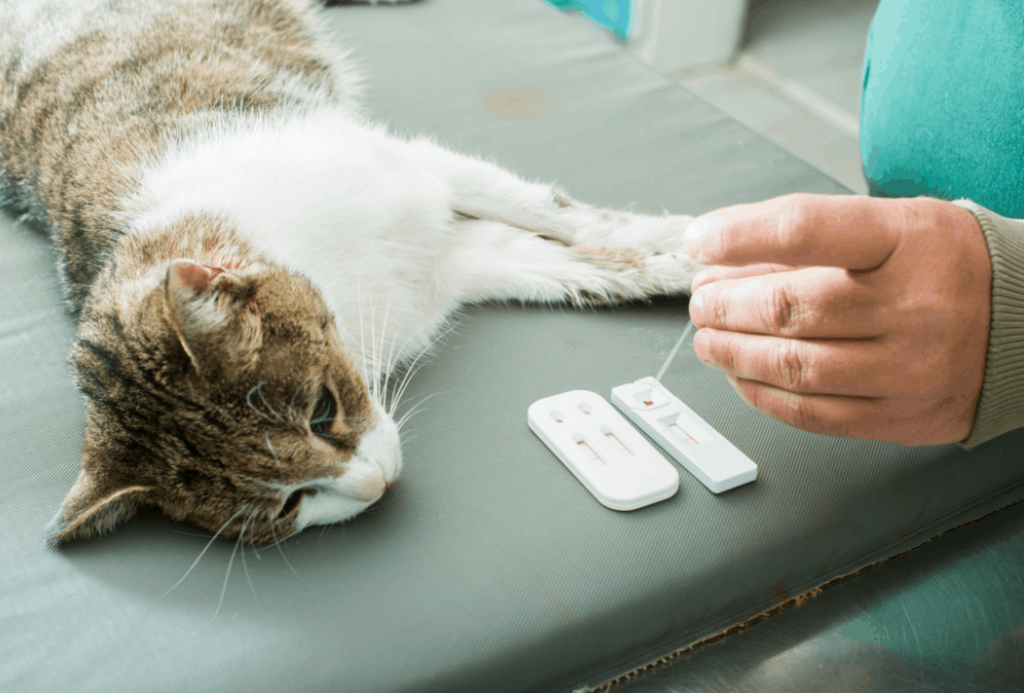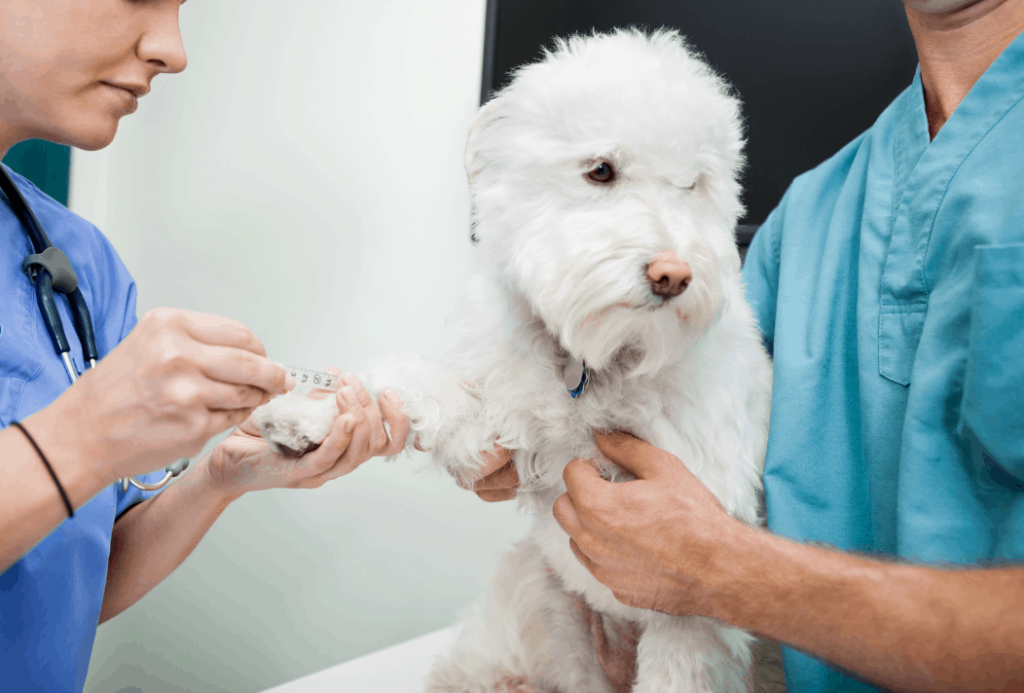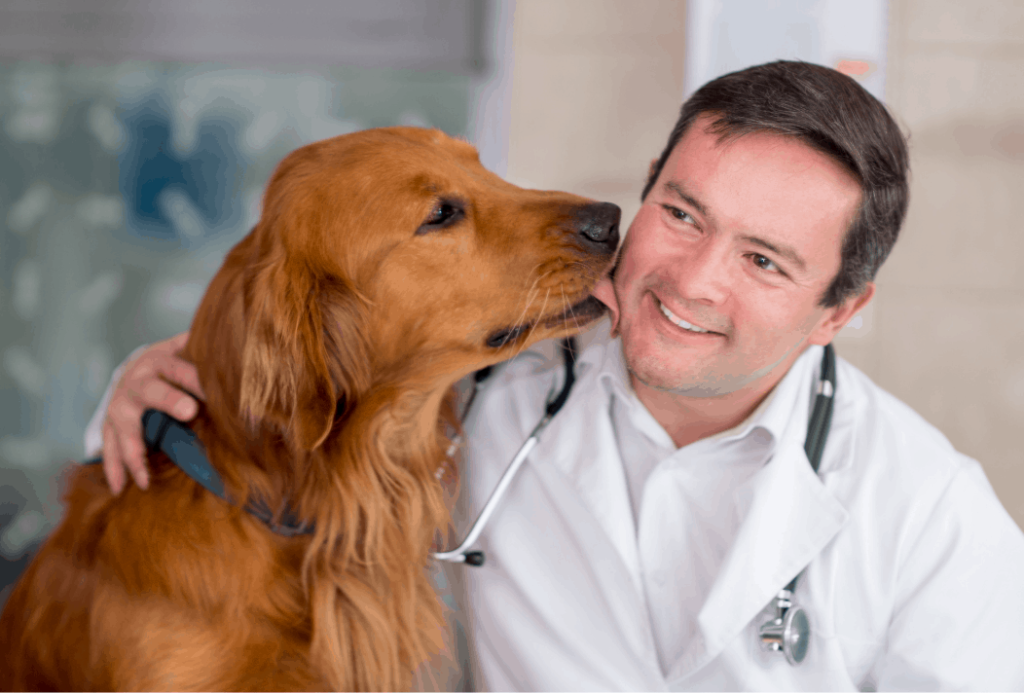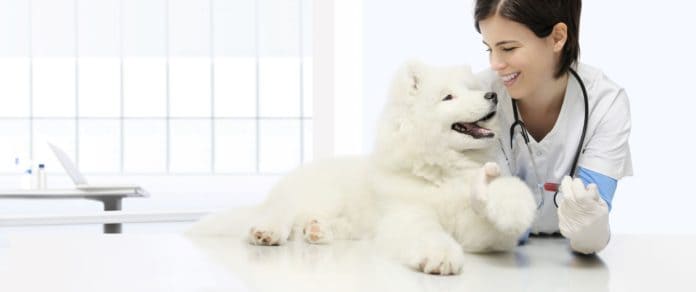Unless you’re a vet, you may not know that bloodwork is an important part of taking care of your dog or cat. By getting your pet’s blood tested, you can catch health problems early on and treat them before they become serious. Here are are the primary reasons why getting your pet’s blood drawn is so important.
Many veterinarians are now recommending routine blood and urine testing for animals in all age groups. Routine bloodwork should be considered for your dog or cat by the time they are two to three years of age. Senior pets should have their bloodwork checked every six months to a year.
So what exactly are the benefits to performing this kind of lab work? And what is your vet looking for when your pet’s bloodwork is checked?
Why is bloodwork important for cats and dogs?
Dogs and cats are very good at hiding their health problems. For the average pet owner, it can be incredibly difficult to know when pets are showing signs of pain and discomfort. Certain disease processes may lurk beneath the surface and cause changes that are not evident on just physical exam findings alone.

Bloodwork looks at a combination of different values. These values can be interpreted with or without other values to help provide an entire picture of your pet’s overall health and to look for signs of certain diseases. Keep in mind that bloodwork can appear completely normal even in cases with serious illness such as cancer, so normal bloodwork doesn’t necessarily rule out everything.
Early detection of disease
The main goal for performing preventive bloodwork is to detect diseases before their clinical signs become apparent. Early detection provides for early intervention which can be critical in certain situations! Routine bloodwork can also provide a baseline for your pet so that your vet knows what is normal. Subsequent bloodwork can be performed to monitor trends in numbers.
Understand symptoms
When pets are sick, veterinarians will almost always recommend bloodwork to help figure out what is causing their patient’s symptoms.
Monitoring of hospitalized patients
Smaller blood panels are recommended at times when patients are hospitalized and need to have electrolytes or other values monitored.
What does your vet use routine bloodwork to look for?
Your vet may prescribe bloodwork for your pet for a number of different reasons, this will impact the exact tests that will be done.
Heartworm
Heartworm testing is one of the most routine blood tests that can be performed in-house for many clinics. With just a few drops of blood, your vet can determine if your dog has heartworm disease. This is especially important in the Southern states where heartworm disease numbers are very high. Shelters also routinely test for this before dogs are adopted out.
Complete blood cell count
There are many different blood tests and panels that constitute bloodwork. Routine bloodwork for healthy patients and most sick ones involves a complete blood cell count (CBC) and a blood chemistry or metabolic panel.
The CBC evaluates levels such as white blood cell count, red blood cell count, and platelet count. It also looks for anemia or hemoconcentration and can help measure overall cell size (microcytosis versus macrocytosis). Because of circumstances that affect cell size variation, it is important to check a drop of blood on a microscope slide to visualize cell shapes and any morphologic changes.
Blood chemistry panels will evaluate enzymes that are associated with the kidneys, liver, and intestines. This means that they can easily identify if there is a problem with these organs. Liver disease or having a liver that isn’t working as well, can lead to complications wtih anesthesia and should be checked before any procedure if it hasn’t been done within the last 6 months. Check out our articles on liver disease in dogs or liver disease in cats for more information on the topic or our article on anesthetic risk for specifics on bloodwork related to anesthesia.
Several protein types are also assessed such as albumin and globulin. These can be a way to way signal there are issues with the liver if there are not enough, be a signal of dehydration if the levels are too high or a number of other ailments that dependant on other tests to assess. Some electrolytes like sodium and potassium are also commonly included. These electrolytes are critical to keep balanced and can be a sign of malnutrition or another disease. Chemistry panels also typically include blood sugar or glucose levels which can help determine if a pet has diabetes mellitus. For more information about diabetes and the specifics, we recommend checking out our article on diabetes in dogs or diabetes in cats. Not all panels check thyroid levels, but this can be included in blood panels from certain companies. Thyroid levels are an important indicator of hyperthyroidism, which is common in cats, or hypothyroidism, which is common in dogs.
CBC and chemistries contain a lot of information. Sometimes, a solitary abnormality can occur but there may not be a reason to panic right away!
The level of fat in the blood
In cases with “fatty” or lipemic blood samples, your pet will need to be fasted prior to the next sample collection.
Are the bloodwork results always accurate?
False results can occur when blood cells break apart in the process of collection or centrifugation.
Your vet might recommend collecting a new sample or may recommend to have the blood rechecked in two or three weeks.

What are some non-routine blood tests?
Abbreviated panels for pets that need monitoring
Abbreviated panels are available from specific laboratory companies. These panels are shorter versions of full chemistries and are useful for situations where specific values need to be rechecked. For example, a cat with a urinary obstruction may have elevated kidney values when he is first hospitalized. A kidney or renal profile can be performed every 24 hours while in hospital to make sure the kidney values improve with treatment.
Blood gas panels
Blood gas panels are similar to the abbreviated panels but look for different parameters such as electrolytes, pH, and ionized calcium. Blood can be more acidic or more alkaline in certain disease processes. Total calcium is normally detected in a full chemistry but can be affected by the abnormalities of other parameters, so ionized calcium is a more accurate depiction of your pet’s calcium levels. This is important because very high levels can indicate serious disease.
Specialized diagnostic tests
There are many other forms of specialized blood tests available through reference laboratories. Many diagnostic tests may look for one particular disease like Addison’s disease or Cushing’s disease, while others are available in panel form that look for infectious disease agents or malabsorptive disorders of the intestines.
Tests for breeders
For breeders, there are tests to help with knowing when to breed and when a pet is pregnant. DNA blood testing is available to help figure out what breeds your pup might be mixed with. In some cases, blood samples can also be used to determine if your pet has specific environmental allergies.
Routine bloodwork is essential to monitoring to health of your cat or dog
In the veterinary world, our patients speak to us in ways that don’t involve speech. Your dog or cat may show signs of illness or none at all, and bloodwork is one of the ways that veterinarians can figure out what is happening beneath the surface. An earlier intervention could prevent catastrophic events!
Routine bloodwork is a great way to establish a baseline of information when your pet is healthy, and there’s nothing better than a clean bill of health!










